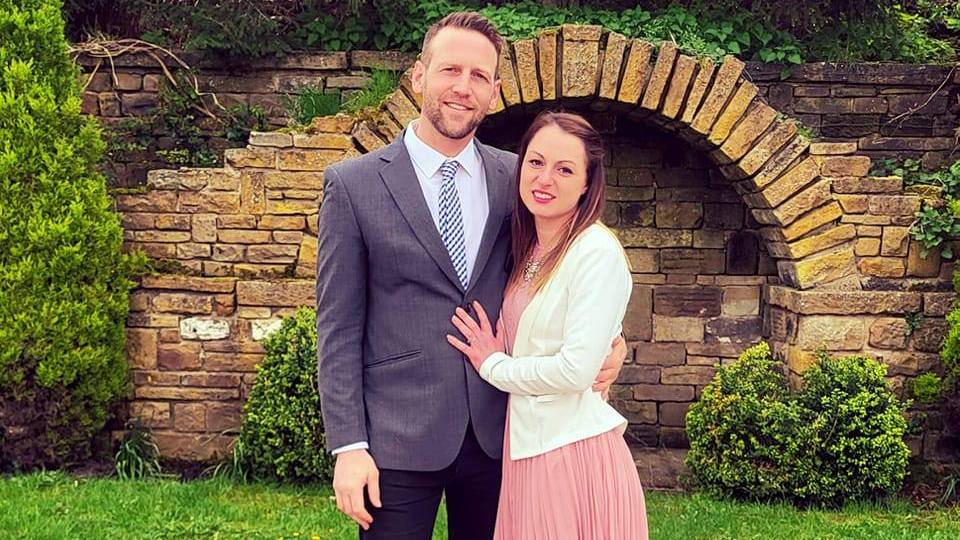A nurse whose body was found in a river three weeks after she disappeared had expressed suicidal thoughts, struggled with postnatal depression and drank as a coping mechanism to mask childhood trauma, an inquest has heard.
Victoria Taylor, 34, a mother-of-one, disappeared from her home in Malton, North Yorkshire, on the morning of September 30.
Her body was recovered from the River Derwent by police divers on October 22, close to where a number belongings including a camouflage cap and rucksack were found on the bank.

Police searched the River Derwent in kayaks after Taylor’s disappearance
ANDREW MCCAREN FOR THE TIMES
An inquest into Taylor’s death at Northallerton coroners’ court was told that the nurse had a history of anxiety, depression and alcohol misuse. She had suffered trauma from an early age, had struggled to cope in adulthood and had expressed suicidal thoughts.
Her fiancé Matthew Williams and her eldest sister Emma Worden told the hearing they believed she had developed postnatal depression after giving birth to her daughter Nancy in September 2022.
The inquest heard that Taylor, who was known to her family as Vixx, told her GP in 2023 about “feelings of worthlessness” and expressed doubts about whether she was a good mother.
She had been rescued from the same river three months earlier after entering the water while drunk. She was referred to the crisis team but was later advised to refer herself to a private psychological service if she felt distressed again.

Taylor was the manager of a dementia unit
NORTH YORKSHIRE POLICE/PA
In May 2024, she was referred to the crisis team again after she was found crying in the street and told a friend she planned to jump in the river. Medics decided there was “no role” for mental health services and suggested lower-level talking therapies.
In August last year she was taken to A&E after overdosing on antidepressants and paracetamol.
Catherine Cundy, the coroner, questioned whether NHS mental health services had missed opportunities to intervene. She said: “Trauma was quite obviously a trigger for this self-harming and drinking that places her at an impulsive risk of death. I can’t see it actually being addressed with her that mental health services could have supported her in dealing with the underlying trauma.”
Taylor was last seen on CCTV walking towards the River Derwent after stopping at a BP garage and Malton bus station on the morning she vanished.

Victoria Taylor was caught on CCTV at a petrol station on the morning of her disappearance
NORTH YORKSHIRE POLICE/PA
Days earlier, she and her fiancé had returned from an all-inclusive family holiday to Majorca where he said she drank heavily and would “disappear during the day to try and source alcohol”.
Taylor’s sister described her as a “loving person” and “very proud of her work” as the manager of a dementia unit, insisting that she “was not an alcoholic” but drank as “coping mechanism” to mask the “heaviness of her past”.
During the inquest, Worden accused NHS mental heath providers of writing off her sister as an alcoholic and failing to treat her unresolved childhood trauma. She said: “Nobody actually looked her in the eyes and said ‘we will help you,’ and she’s not here now because you failed her.”
After the inquest, Worden said in a statement: “Vixx was a devoted mother, a loving fiancée and a fiercely loyal sister. She showed up for those she loved with warmth, humour and a deep sense of care. Her relationships were central to her identity, and she gave everything she had to protect and support the people around her.
“She also lived with challenges. These were not hidden. She reached out for help. She made herself visible to services. And yet, time and again, she was failed and left without the support she needed.
“The failures in her care were not isolated incidents. They were part of a wider pattern of systemic neglect and under-resourcing in mental health services. Vixx deserved better. She deserved to be seen, heard and supported. Instead, she was left to carry burdens alone. Her death is a tragedy — but it must also be a turning point. Let this inquest be a step toward accountability, learning, and change.
In a final call to her fiancé at 12.35pm on September 30, Taylor told him that she was in an “area with shrubs and trees”, the inquest was told. Then she contacted Williams’ father to claim she had seen her partner in the water.
Police believe she entered the river at about 2pm, when communications stopped. High rainfall would have made the river impossible to stand up in and the water temperature of 10C would have caused cold water shock .
Police defended the three-week search and said that disclosing Taylor’s mental health and alcohol issues to the media would have been inappropriate. Toxicology tests showed Taylor had alcohol in her system at the level of one and a half times the drink-drive limit.
The coroner concluded that she could not be sure that Taylor intended to take her own life.
She was critical of Tees, Esk and Wear Valleys NHS Foundation Trust’s provision of mental heath support and said she would write a prevention of future deaths report.
Despite an “escalating pattern of binge drinking, suicidal thoughts and impulsive acts of self harm”, Taylor was left “in something of a limbo”, she said.
Cundy returned a narrative conclusion with the medical cause of death given as drowning.
For confidential support, contact the Samaritans on 116 123 or visit samaritans.org
